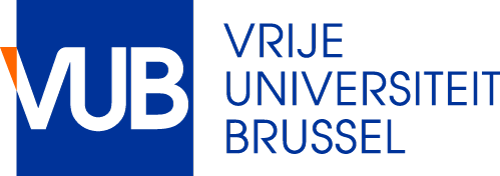Old programme (before 2023-2024):
Composing your study programme
You can find a guide on how to compose your study programme in the old programme here.
Programme overview:
The full programme overview can also be found on the VUB website.
Core courses
From the courses listed below, students must obtain 36 ECTS.
- Oceanography (4 ECTS)
- Estuarine and Coastal Systems (5 ECTS)
- Freshwater Ecology (5 ECTS)
- Limnology (5 ECTS)
- Law and Ethics on Conservation of Aquatic Systems (3 ECTS)
- In-situ and Remote Sensing Tools in Aquatic Sciences (5 ECTS)
- Environmental Modelling (3 ECTS)
- Seminars: Case Studies on Biodiversity Management (3 ECTS)
- Integrated Marine Coastal Ecology Field Course (3 ECTS)
Choice 1 Field Courses
Different field courses will be organized from which the student must choose one (3 credits).
From the courses listed below, students must obtain 3 ECTS.
- Integrated Field Course at Sea (3 ECTS)
- Integrated Limnological Field Course (3 ECTS)
- Integrated Estuarine Field Course (3 ECTS)
Choice 2 Monsoon school
Students can choose to follow the Monsoon school, to follow another summer school for 6 ECTS, or to follow other courses for 6 ECTS from any Belgian Master programme. From the courses listed below, students must obtain 6 ECTS.
- Monsoon School (6 ECTS)
- Summer School (6 ECTS)
- Free elective courses (6 ECTS) - choice must be approved by head of exam commission. To ask approval, fill out this form by the deadline.
Broadening courses
From the courses listed below, students must obtain 12 ECTS.
- Governance and Policy in Development and Cooperation Part I (3 ECTS)
- Governance and Policy in Development and Cooperation Part II (3 ECTS)
- Internship (6 ECTS)
Supporting courses
Based on the student's background and after approval of the chairman of the examination board, students must choose 9 ECTS-credits from the courses listed below. At least the level of 'Advanced Applied Statistics' must be reached.
- Introduction to GIS (3 ECTS)
- Introduction to Marine and Lacustrine Biology (3 ECTS)
- Advanced Applied Statistics (3 ECTS)
- Introduction to Data Mining (3 ECTS)
- Analysis of Biological Data (6 ECTS)
- Conservation Genetics (3 ECTS)
- Water Quality (3 ECTS)
- Applied Geomorphology (6 ECTS)
- Natural Risk Management (3 ECTS)
- Methods of Scientific Diving (3 ECTS)
Major
One major to choose out of 4 specializations, consisting of 24 ECTS compulsory courses.
You can only choose the major 4 'Marine and Lacustrine Geosciences' if you have a Bachelor of Science in Geology.
Major 1 Global Change Impacts on Ecology and Biodiversity
- Marine Genomics (3 ECTS)
- Marine Food Web Ecology (3 ECTS)
- Ecology of Coastal Seas (3 ECTS)
- Marine Extreme Systems (6 ECTS)
- Lacustrine Systems (3 ECTS)
- Aquatic Microbial Ecology (6 ECTS)
Major 2 Conservation Biology and Ecosystem Management
- Marine Fisheries Ecology and Management (6 ECTS)
- Integrated Coastal Zone Management (3 ECTS)
- Conservation Genetics (3 ECTS)
- Environmental Impact Assessment (3 ECTS)
- Law of the Sea and Protection of Oceans (3 ECTS)
- Marine Biodiversity (3 ECTS)
- Free elective courses (3 ECTS) - choice must be approved by head of exam commission, prof. Marc Kochzius. When approved, e-mail the name of the course, number of credits, link to course file, and name of course it is replacing to stbfacwe@otrs.vub.be (deadline 15 October)
Major 3 Environmental Impact and Remediation
- Environmental Impact Assessment (3 ECTS)
- Aquatic Ecotoxicology and Environmental Monitoring (6 ECTS)
- Ecosystem Based Adaptation to Global Change (6 ECTS)
- Physiology of Aquatic Organisms (6 ECTS)
- Integrated Practicals (3 ECTS)
Major 4 Marine and Lacustrine Geosciences
- Advanced Sedimentology (6 ECTS)
- Paleobiology of Micro-organisms (6 ECTS)
- Integrated Offshore Exploration (6 ECTS)
- Paleoclimatology and Climate Change (6 ECTS)



